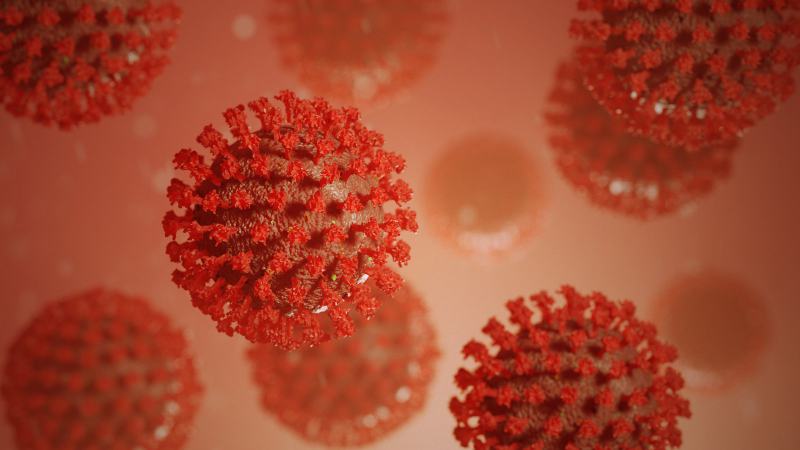Although the Centers for Disease Control and Prevention (CDC) doesn’t specifically list back pain as a symptom, the agency does include muscle pain and body aches as a sign to look out for.
Is back pain a common symptom of COVID-19?
A survey conducted by Survivor Corps, a Facebook support group for COVID-19 survivors, and Natalie Lambert, Ph.D., of Indiana University’s School of Medicine, found COVID-19 “long-haulers”—people who have technically recovered from COVID-19, but still experience long-term symptoms or side effects—reported experiencing lower-, upper-, and mid-back pain.
Back pain due to COVID-19 is grouped in with general muscle aches or pains, which the CDC lists as an official symptom. A February report from the World Health Organization (WHO) analyzed nearly 56,000 cases of COVID-19 in China and found that nearly 15% of patients experienced muscle aches and pains.
“COVID-19, like other viruses, will cause systemic symptoms,” says Marcus Duda, M.D., orthopedic surgeon. “Similar to having the flu, COVID-19 may cause generalized achiness throughout the body.”
Why does COVID-19 sometimes cause back pain?
When you get sick, your body sets off an immune response to fight off what doesn’t belong there, such as harmful bacteria or viruses. “The joint pain in the back and legs is due to the body’s inflammatory response to the virus,” Dr. Duda says. “These viral infections cause shaking, chills, body aches, and difficult mobility.”
More specifically, the muscle aches and pains are “a result of cells of the immune system releasing interleukins, which are proteins that help in the fight against invading pathogens,” Richard Watkins, M.D., infectious disease physician and professor of internal medicine at the Northeast Ohio Medical University.
What does back pain due to COVID-19 feel like?
If you have muscle pain paired with symptoms like a fever, dry cough, loss of taste or smell, sore throat, headache, or aches in other areas, it could be a sign of COVID-19. This form of back pain feels “like cramping or spasming of the back muscles,” Dr. Duda says.
“COVID-19 is unique because it causes an increased inflammatory response in the lungs and brain,” he says. “That is why those with COVID-19 can have prolonged headaches for months after the virus has resolved and why people sometimes require oxygen or ventilatory support.”
In general, the aches and pains you feel from COVID-19 feel much different than the soreness you’d feel after, say, intense exercise. “The pain from working out tends to go away after a few hours, but can persist for days with COVID-19,” Dr. Watkins said.
Having back pain doesn’t automatically mean you have COVID-19
Although aches and pains can be a sign of COVID-19, other conditions like sciatica, or injuries are more commonly associated with back pain, including sitting too much and poor posture – which you may be dealing with if you’ve been working from home. A sports injury, arthritis, a bulging disc in the spine, or osteoporosis (otherwise called spondylosis) could also be to blame.
If you have other signs of COVID-19, your doctor can guide you on getting tested and explain how to treat your symptoms at home if your illness is considered mild. Dr. Duda recommends taking acetaminophen (Tylenol), which will reduce pain and fever, and applying a heating pad to the back to help relieve aches and spasming. Getting plenty of rest and staying hydrated will be helpful, too.
As you recover, note that body aches from COVID-19 can linger for up to two weeks for most people, Dr. Watkins said, but rest assured “the muscle pain usually isn’t incapacitating.”
Find Long-Lasting Back Pain Relief at Bonati
If your back pain persists more than a few weeks, becomes more severe over time, or is accompanied by unexplained weight loss or numbness in the limbs, talk to a doctor to ensure a proper diagnosis. Utilizing the patented, targeted Bonati Spine Procedures, the Bonati Spine Institute has proven success in eliminating chronic back pain and symptoms. If you, or a loved one, are dealing with back or neck pain, allow our physicians to review your case and verify how we might be able to help you. We’ve performed over 70,000 procedures in more than 35 years our doors have been open. Simply call us at 844-662-2635 to speak with a Bonati Institute patient advocate, or complete our online contact form here.

